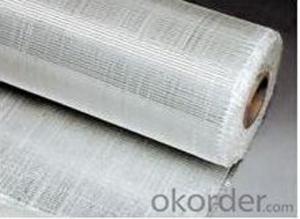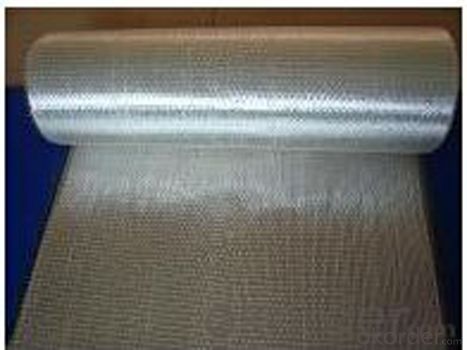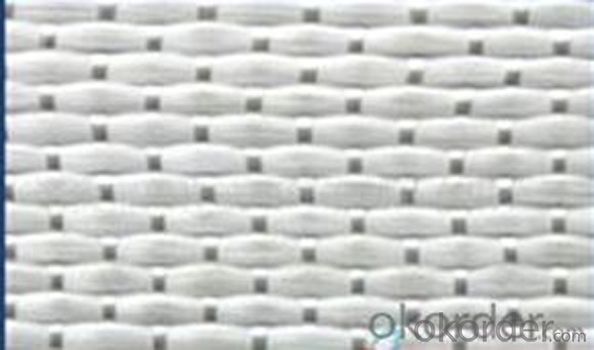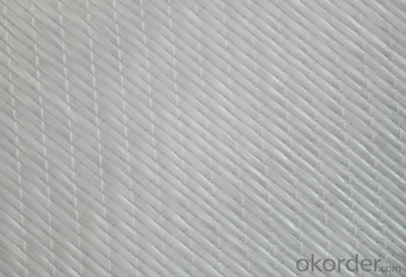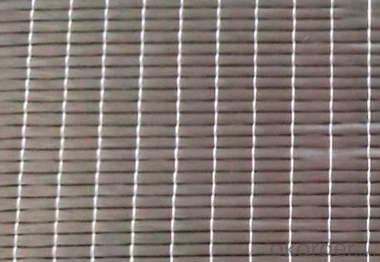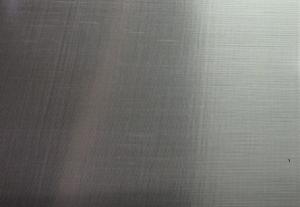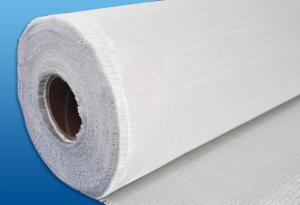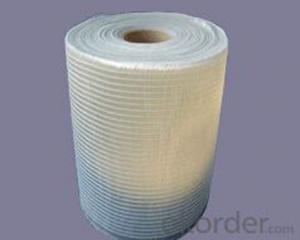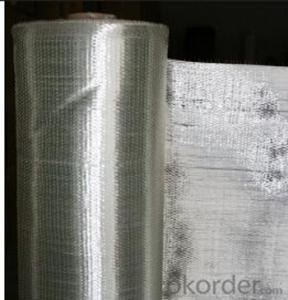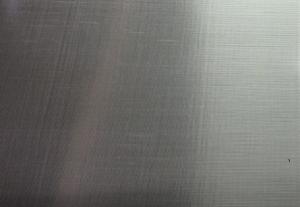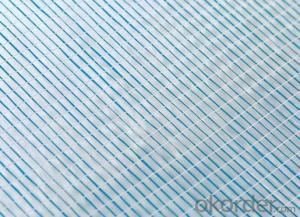Fiberglass Mat Tissue Unidirectional Fabric 600gsm
- Loading Port:
- Shanghai
- Payment Terms:
- TT or LC
- Min Order Qty:
- 5000 kg
- Supply Capability:
- 1000000 kg/month
OKorder Service Pledge
OKorder Financial Service
You Might Also Like
Fiberglass Unidirectional fabric 600gsm
Description
Fiberglass unidirectional fabric is the product combining the roving in certain angel of 0 ℃ or 90 ℃ with polyester yarn.
Product Traits
• Fiber straight arranged, fiber strength be ultimately used.
• No powder or emulsion, sink quickly, easy to operate.
• Easy to design, high strength in one direction.
Applications
Mainly be used as reinforced materials in the composite material industry.
• Matrix: unsaturated polyester resin, vinyl ester resin, epoxy resin and phenolic resin etc.
• Craft: winding, pultrusion, hand lay up, etc.
• Ultimate products: storage tank, tube, pultruded profiles, FRP body of boat, etc.
Specifications
specifications
Fibre type
0°Roving
90°Roving
Overall weight
Width
(g/㎡)
(g/㎡)
(g/㎡)
(mm)
EDW227
E-Glass
—
227
227
1524
EDW350
E-Glass
—
350
350
1524
EDW450
E-Glass
—
450
450
1524
EDJ600
E-Glass
480
120
600
1524
EDJ800
E-Glass
600
200
800
1524
EDJ1000
E-Glass
600
400
1000
1524
Packaging: Wrapped in PVC and placed within a cardboard carton.
Image:
FAQ
a.Pacage
Each CHEMICAL FIBER GRIDDING CLOTH is wound onto a paper tube The roll is wrapped up with plastic film,and then packed in a cardboard box. The rolls can be vertically or horizontally placed. For transportation, the rolls can be loaded into a container directly or on pallets.
b.Product storage:
Unless otherwise specified, CHEMICAL FIBER GRIDDING CLOTH should be stored in a dry, cool and rain-proof area. It is recommended that the room temperature and humidity should be always maintained at 15℃~35℃ and 50%~75% respectively.
- Q: What is the thickness range of fiberglass mat tissue?
- The thickness range of fiberglass mat tissue typically varies between 0.2mm to 3mm.
- Q: Can fiberglass mat tissue be used for pipe insulation?
- No, fiberglass mat tissue is not typically used for pipe insulation. Fiberglass mat tissue is a thin material that is commonly used for reinforcing purposes in various industries. It is not designed to provide thermal insulation or to prevent heat loss in pipes. For pipe insulation, materials such as foam, mineral wool, or fiberglass pipe insulation are more commonly used. These materials are specifically designed to provide thermal insulation and protect pipes from heat loss, condensation, and freezing.
- Q: What are the potential limitations of using fiberglass mat tissue?
- There are several potential limitations of using fiberglass mat tissue. Firstly, fiberglass mat tissue is relatively brittle compared to other materials. This means that it may be prone to cracking or breaking under certain conditions, especially if it is subjected to high levels of stress or impact. This can limit its use in applications where durability and flexibility are important. Secondly, fiberglass mat tissue is not inherently resistant to moisture. If exposed to water or high humidity for extended periods of time, it may absorb moisture and lose its structural integrity. This can make it unsuitable for use in environments where moisture resistance is a critical requirement. Additionally, fiberglass mat tissue can be challenging to work with due to its sharp edges and fibers. Special precautions, such as wearing protective clothing and using proper handling techniques, are necessary to avoid injury. This can increase the complexity and cost of using fiberglass mat tissue in certain applications. Furthermore, fiberglass mat tissue may release fine particles or fibers into the air when cut or manipulated. These particles can pose health risks if inhaled, potentially leading to respiratory issues or irritation. Proper safety measures, such as using masks and adequate ventilation, must be taken to minimize these risks. Lastly, fiberglass mat tissue is a relatively expensive material compared to some alternatives. Its production process involves multiple steps and specialized equipment, which can contribute to higher costs. This can limit its use in applications where cost-effectiveness is a primary consideration. Overall, while fiberglass mat tissue offers various advantages in terms of strength, insulation, and fire resistance, its potential limitations should be carefully considered before selecting it for a specific application.
- Q: Can fiberglass mat tissue be used as a reinforcement in concrete?
- Yes, fiberglass mat tissue can be used as a reinforcement in concrete. Fiberglass mat tissue is a thin, lightweight material made from woven fiberglass strands. It is commonly used in construction and industrial applications due to its high strength and durability. When used as reinforcement in concrete, fiberglass mat tissue can help to increase the tensile strength and crack resistance of the concrete. It is typically applied in the form of a mesh or fabric, which is embedded within the concrete during the pouring process. The fiberglass strands in the mat tissue provide additional strength and reinforcement to the concrete, helping to prevent cracking and improve overall structural integrity. This can be particularly beneficial in areas where the concrete is subject to high loads, such as in bridges, concrete slabs, or precast concrete elements. Furthermore, fiberglass mat tissue is corrosion-resistant, which makes it a suitable choice for applications where the concrete is exposed to moisture or chemicals. It does not rust or degrade over time, unlike traditional steel reinforcement, which can help to extend the lifespan of the concrete structure. Overall, fiberglass mat tissue is a viable and effective reinforcement option for concrete. It offers enhanced strength, crack resistance, and corrosion resistance, making it a popular choice in various construction projects.
- Q: How does fiberglass mat tissue perform in terms of moisture absorption?
- Fiberglass mat tissue boasts exceptional moisture absorption capabilities. Its composition of fine fibers grants it a large surface area, allowing for swift moisture absorption. Moreover, fiberglass mat tissue exhibits hydrophobic properties, repelling water and preventing prolonged moisture retention. This attribute renders it an optimal material for moisture-resistant applications, including the construction of waterproofing membranes or the production of boats and water tanks. In sum, fiberglass mat tissue showcases remarkable performance in averting moisture absorption and upholding its structural integrity, even within damp surroundings.
- Q: How does fiberglass mat tissue perform in terms of thermal conductivity?
- Fiberglass mat tissue performs well in terms of thermal conductivity. Due to its composition of fine glass fibers, it has a low thermal conductivity value, meaning it is a good insulator against heat transfer. The interlocking fibers create a barrier that slows down the movement of heat, making it an effective material for thermal insulation applications. Additionally, the mat tissue is often combined with other materials, such as binders or coatings, to enhance its thermal resistance properties. Overall, fiberglass mat tissue is a reliable choice when it comes to minimizing thermal conductivity and providing insulation in various industries and applications.
- Q: Does fiberglass mat tissue provide any UV resistance?
- Indeed, some degree of UV resistance is typically offered by fiberglass mat tissue. Comprised of glass fibers embedded in a resin matrix, this material provides a certain level of safeguard against UV radiation emitted by the sun. Nevertheless, it should be emphasized that the extent of UV resistance may differ based on the precise composition and manufacturing procedure of the fiberglass mat tissue. Furthermore, extended exposure to UV radiation can still result in gradual deterioration. Therefore, it is advisable to implement suitable measures, such as employing UV-resistant coatings or finishes, to augment the longevity and resilience of fiberglass mat tissue when utilized outdoors.
- Q: What is the thermal resistance of fiberglass mat tissue?
- The thermal resistance of fiberglass mat tissue is determined by several factors, including the mat's thickness, fiber density, and the inclusion of additional materials or coatings. In general, fiberglass exhibits low thermal resistance, signifying its excellent heat conductivity. Nevertheless, when employed as insulation, the thickness and density of the fiberglass mat can elevate its thermal resistance, enhancing its ability to reduce heat transfer. It is crucial to acknowledge that precise thermal resistance values may differ based on the product and application, hence it is advisable to consult the manufacturer's specifications for precise information.
- Q: Is fiberglass mat tissue fire resistant?
- Yes, fiberglass mat tissue is fire resistant.
- Q: How does fiberglass mat tissue compare to other types of reinforcement materials?
- Fiberglass mat tissue, widely utilized in industries such as construction, automotive, and marine, serves as a common type of reinforcement material. When evaluating fiberglass mat tissue in comparison to other reinforcement materials, several factors come into play. First and foremost, fiberglass mat tissue exhibits remarkable strength and durability. With its high tensile strength, it can endure substantial pulling or stretching forces without distorting or breaking. This strength is comparable, if not superior, to reinforcement materials like carbon fiber or aramid fibers. Furthermore, fiberglass mat tissue displays excellent resistance to chemical, moisture, and UV degradation, rendering it suitable for long-term usage in various environments. Another advantage of fiberglass mat tissue lies in its cost-effectiveness. In contrast to other reinforcement materials, fiberglass is relatively affordable, making it a popular choice for manufacturers and builders who require a cost-efficient solution without compromising quality. Its affordability expands its accessibility to a wider array of applications and industries. Moreover, fiberglass mat tissue is renowned for its versatility. It can be molded into different shapes and sizes, allowing for customization and flexibility in design. This adaptability makes fiberglass mat tissue suitable for a broad range of applications, ranging from simple repairs to complex structural reinforcements. However, it is important to note that fiberglass mat tissue may have certain limitations when compared to other reinforcement materials. For instance, it may not possess the same level of stiffness or strength as carbon fiber, which is often preferred in high-performance applications. Additionally, fiberglass mat tissue may exhibit lower resistance to impact or fatigue when compared to materials like aramid fibers. In conclusion, fiberglass mat tissue provides a favorable combination of strength, durability, cost-effectiveness, and versatility, making it a favored choice for numerous applications. While it may have some limitations when compared to other reinforcement materials, its overall performance and affordability render it a widely utilized and dependable option in various industries.
Send your message to us
Fiberglass Mat Tissue Unidirectional Fabric 600gsm
- Loading Port:
- Shanghai
- Payment Terms:
- TT or LC
- Min Order Qty:
- 5000 kg
- Supply Capability:
- 1000000 kg/month
OKorder Service Pledge
OKorder Financial Service
Similar products
Hot products
Hot Searches
Related keywords
